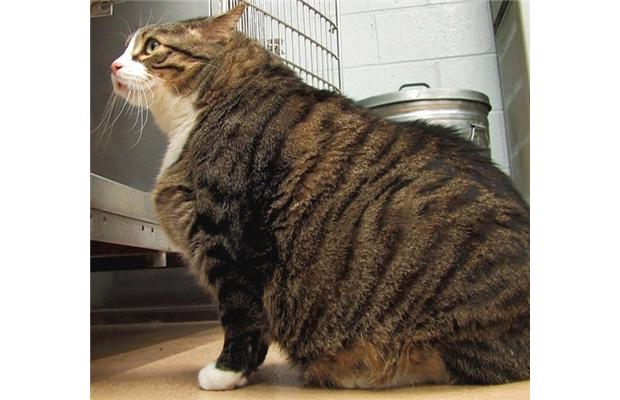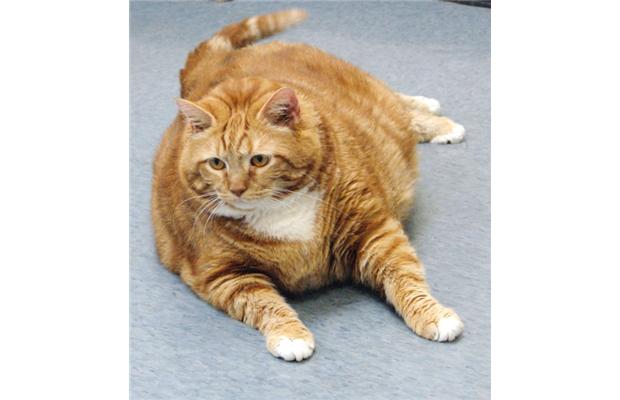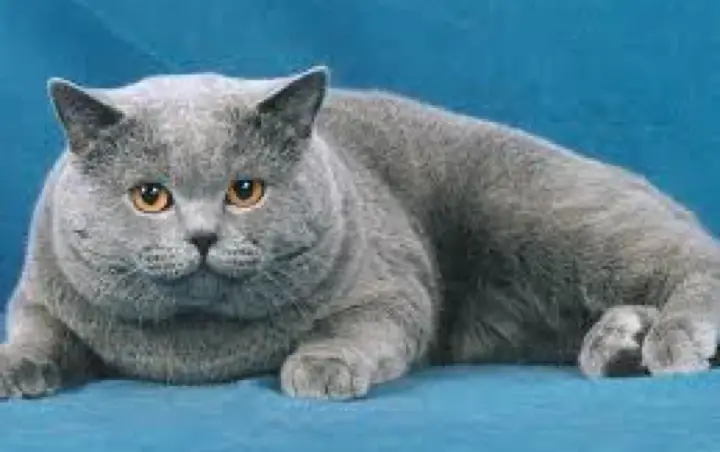
If your pet puts on weight, you might assume it is simply the result of having an animal with a voracious appetite, perhaps combined with being an indulgent owner.
But now experts think there could be more to it than that, and believe a cat or dog’s growing girth may be the symptom of underlying emotional turmoil on the part of the creature.
Vets have suggested that many pets are becoming obese because they are prone to “emotional eating,” where they eat in an attempt to dispel feelings of unhappiness and stress.
The factors which could trigger “emotional eating” in pets, include boredom, anxiety and depression, the study suggests.
Rather like Bridget Jones, the fictional singleton who finds comfort from her relationship difficulties by eating, some pets use food as a “coping mechanism” to deal with “emotional distress,” vets believe.

The claims are made in research contained in the latest edition of the Journal of Veterinary Behavior. Dr. Franklin McMillan, a former vet and retired clinical professor of medicine at the Western University of Health Sciences College of Veterinary Medicine, in California, has reviewed dozens of studies into the eating habits of pets and laboratory animals, as well as humans.
He shows that animals, like humans, can eat too much, not necessarily out of hunger, but also a result of “disinhibition,” whereby overeating is in response to stimuli other than internal hunger cues. He also cites earlier studies to show that some animals offered an abundance of food do not overeat, as well as others showing a link between negative emotions and eating.
The study suggests the obesity rate is as much as 25 per cent in cats, and 45 per cent in dogs. It also indicates which breeds are particularly prone: Labrador retriever, cairn terrier, Cavalier King Charles, Scottish terrier and cocker spaniel for dogs; domestic shorthair for cats.
It has been found that obese cats are more likely to be living in houses with only one or two cats; and fat dogs in single-dog households. Female dogs seem to be more susceptible to obesity than male ones.
While in humans, such comfort eating tends to involve certain foods, usually high in calories, the research shows that animals will comfort eat even if the only food on offer is their usual fare.
Claims of emotional turmoil may surprise owners, who might point out that their pets appear never more contented than when overeating. But the research suggests that overeating can also be a sign of a pleasurable emotional state.
McMillan, who now works for the Best Friends Animal Society, an animal welfare organization in the U.S., says the findings are such that they should herald a change in the way obesity in cats and dogs is tackled.
Rather than simply reducing the amount of food they can eat and increasing their exercise, owners and vets need to address their underlying emotional problems.
By simply putting a cat or dog that’s an “emotional eater” on a diet, pet owners could worsen the situation, by taking away the animal’s “coping mechanism” and making it even more unhappy — and even hungrier.
“The bottom line is that there is a ton of evidence in humans and animals like rodents that stress-induced eating, or emotional eating, is a very real thing and contributes to obesity, so we should be looking at it in pet animals,” said McMillan. “The indicators show that obesity is rising in humans and in pets. How much is attributable to emotional factors — that is the great unknown.”
